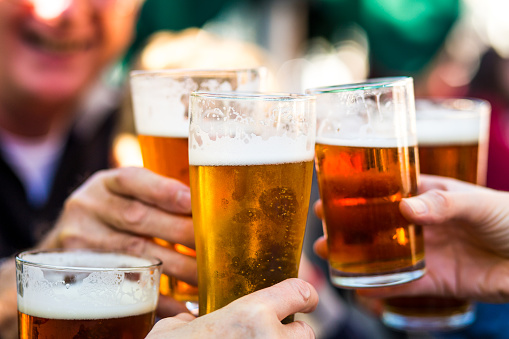There are a few things that you can’t avoid in a brewery and most of the time we tend to commit mistakes. Below are some brewery mistakes you need to avoid as they will greatly affect you.

1. Not Doing Your Research
Before you start brewing, it’s important to do your research and understand the basics of beer brewing. This includes understanding the different types of beer, the brewing process, and what equipment you’ll need. Not doing your research can lead to costly mistakes, such as using the wrong ingredients or not having the proper equipment.
2. Not Sanitizing Your Equipment
One of the most important steps in brewing beer is sanitizing your equipment. This ensures that your beer will be free of bacteria and other contaminants that could cause it to spoil. Failure to sanitize your equipment can result in a tainted beer that is unfit to drink.
3. Not Following Instructions
When you’re brewing beer, it’s important to follow the instructions carefully. This includes following the recipe, ensuring that you use the correct ingredients, and monitoring the fermentation process. Not following instructions can lead to subpar beer that doesn’t taste as good as it could.
4. Not Monitoring Your Fermentation
Fermentation is one of the most important steps in brewing beer. It’s during this process that the yeast converts the sugars in the wort into alcohol. If fermentation is not monitored carefully, it can result in off-flavors and other problems with the beer.
5. Not Storing Your Beer Properly
Once your beer is brewed, it’s important to store it properly to ensure that it remains fresh and flavorful. This includes storing it in a cool, dark place and avoiding exposure to light and heat. Not storing your beer properly can cause it to spoil quickly.
6. Not Cleaning Your Equipment
Once you’re done brewing, it’s important to clean your equipment thoroughly. This ensures that your equipment will be ready for your next batch of beer and prevents the buildup of bacteria and other contaminants. Failure to clean your equipment can lead to contamination of your next batch of beer.
7. Not Knowing Your Target Audience
If you don’t know who you’re trying to reach with your brewery, you’re likely wasting time and money on marketing efforts that won’t pay off. Figure out who your ideal customer is and make sure all of your communications are targeted toward them.
8. Underestimating The Importance Of Branding
Your brewery’s brand should be more than just a logo – it should encompass everything from the tone of your communications to the design of your taproom. Make sure you put thought into every aspect of your brand and how it will be received by your target audience.
9. Failing To Differentiate Yourself From The Competition
With so many breweries opening up these days, it’s more important than ever to make sure your brewery stands out from the crowd. What makes you unique? What can you offer that no one else can? Make sure you communicate these points clearly to potential customers.
10. Not Having A Solid Business Plan
Opening a brewery is a risky endeavor, so it’s important to have a solid business plan in place before you start. Know your costs, your revenue streams, and your goals for the business. This will help you make informed decisions as you move forward.
11. Skimping On Quality
In the world of craft beer, quality is key. Don’t cut corners when it comes to ingredients or brewing processes – this will only lead to subpar beer that won’t appeal to customers.
12. Not Being Active On Social Media
These days, social media is a vital part of any business’s marketing strategy. Make sure you’re active on platforms like Twitter, Facebook, and Instagram, and that you’re regularly engaging with your audience. This will help you build a loyal following and spread the word about your brewery.
Making beer is an art and a science. By following these tips, you can avoid making costly mistakes that could ruin your batch of beer. With a little practice, you’ll be brewing delicious beer that your friends and family will enjoy. Cheers!
Check out Tar Barrel Brewery to know more about breweries and distilleries.
